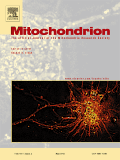
Mitochondrial DNA Part A
Scope & Guideline
Illuminating Health Through Mitochondrial Studies
Introduction
Aims and Scopes
- Mitochondrial Genome Studies:
Investigating the structure, function, and evolutionary implications of mitochondrial genomes across diverse organisms, contributing to our understanding of genetic diversity and phylogenetic relationships. - Population Genetics and Phylogeography:
Exploring genetic diversity, population structure, and demographic history using mitochondrial DNA, enabling insights into species evolution, conservation, and management. - Species Delimitation and Cryptic Diversity:
Utilizing mitochondrial DNA barcoding and genomic analyses to identify cryptic species and understand species boundaries, which is crucial for biodiversity conservation. - Comparative Genomics:
Conducting comparative analyses of mitochondrial genomes to uncover evolutionary patterns and adaptations among different taxa. - Mitochondrial Disease Research:
Examining the association between mitochondrial DNA variations and human health, particularly in relation to diseases and reproductive biology.
Trending and Emerging
- Mitochondrial Genomics and Phylogenomics:
An increasing number of studies focus on comprehensive analyses of mitochondrial genomes, utilizing phylogenomic approaches to resolve complex evolutionary relationships. - Environmental and Climate Impacts on Mitochondrial DNA:
Research examining how environmental changes and climate factors influence mitochondrial genetic diversity and evolutionary trajectories is gaining traction, highlighting the relevance of mitochondrial studies in ecological contexts. - Human Health and Mitochondrial DNA:
There is a growing interest in the implications of mitochondrial DNA variations in human health, particularly in relation to reproductive health and genetic diseases, which emphasizes the significance of mitochondrial research beyond traditional biological boundaries. - DNA Barcoding for Conservation Efforts:
The application of mitochondrial DNA barcoding for conservation purposes is increasingly prominent, as researchers seek to identify and protect cryptic species and manage biodiversity effectively.
Declining or Waning
- Mitochondrial DNA in Non-Model Organisms:
Research focusing on less common or non-model organisms has decreased, potentially due to a shift towards more widely studied taxa or those with clearer ecological or conservation implications. - Morphological Studies:
The integration of morphological analysis alongside mitochondrial studies has lessened, as the journal increasingly emphasizes molecular techniques and genomic analyses over traditional morphology. - Historical Phylogenetics:
There is a noticeable decline in studies that primarily focus on historical phylogenetics without integrating contemporary genetic data, reflecting a broader trend in evolutionary research towards more dynamic and integrative approaches.
Similar Journals

MITOCHONDRION
Connecting Researchers in Mitochondrial StudiesMITOCHONDRION is a distinguished peer-reviewed journal published by Elsevier Science Ltd, focusing on the intricate roles of mitochondria in various biological processes. With an ISSN of 1567-7249 and an E-ISSN of 1872-8278, this journal has carved out a significant niche within the fields of Cell Biology, Molecular Biology, and Molecular Medicine, as evidenced by its Q2 ranking in these categories for 2023. The journal emphasizes the latest research on mitochondrial biogenesis, function, and dynamics, making it a pivotal resource for professionals, researchers, and students engaged in cutting-edge mitochondrial studies. With a robust Scopus ranking, placing it in the top percentiles of its categories, MITOCHONDRION not only advances scientific understanding but also fosters collaboration and innovation within the research community. Though it does not offer Open Access, the journal's comprehensive articles and reviews remain indispensable for those striving to unravel the mysteries of mitochondrial biology. For research spanning from its inception in 2001 through its ongoing commitment to 2024, MITOCHONDRION continues to be a vital platform for disseminating high-quality, impactful research in the realm of mitochondrial science.

G3-Genes Genomes Genetics
Fostering Innovation in Clinical GeneticsG3-Genes Genomes Genetics is a prominent open access journal published by Oxford University Press, Inc., dedicated to advancing the field of genetics and genomics. Since its inception in 2011, the journal has become a vital resource for researchers, professionals, and students, featuring high-quality, peer-reviewed articles that cover a broad spectrum of topics within genetics, including clinical genetics and molecular biology. With an impressive standing reflected in its 2023 Scopus rankings, which positions it in the Q2 category for Genetics (Clinical) and Q1 for Medicine (Miscellaneous), G3 remains at the forefront of scholarly communication in these disciplines. The journal's commitment to open access ensures that cutting-edge research is accessible to a global audience, stimulating collaboration and innovation in the field. For those eager to explore the latest in genetic research, G3 serves as an indispensable platform, inviting contributions that push the boundaries of scientific understanding.

Conservation Genetics Resources
Advancing the Frontiers of Genetic ConservationConservation Genetics Resources, published by SPRINGER in Germany, is a key resource in the field of conservation science, focusing on the genetic aspects essential for biodiversity preservation and ecosystem management. With an ISSN of 1877-7252 and an E-ISSN of 1877-7260, this journal has established its presence as a vital platform for disseminating high-quality research that addresses the challenges of genetic conservation strategies. Notably, it has demonstrated a strong academic impact, currently holding a Q3 ranking in Ecology, Evolution, Behavior and Systematics and Q4 in Genetics for 2023, alongside Scopus ranks that position it as a notable contributor in its fields. This journal invites contributions that enhance the understanding of genetic diversity, population genetics, and conservation genomics, and it serves as an essential reference for researchers, professionals, and students committed to the preservation of our natural heritage. The access options are varied, catering to the needs of its diverse readership, and making it an indispensable addition to academic research spaces.

JOURNAL OF CELLULAR PHYSIOLOGY
Exploring the Depths of Cell Function and PhysiologyJOURNAL OF CELLULAR PHYSIOLOGY, published by Wiley, is a leading peer-reviewed journal that has been at the forefront of cellular research since its inception in 1945. With its prestigious Q1 and Q2 rankings in the fields of Clinical Biochemistry and Cell Biology, this journal is highly regarded within the scientific community, reflecting its significant impact factor and rigorous peer-review process. Addressing the intricacies of cell function and physiology, it serves as a crucial resource for researchers, professionals, and students dedicated to advancing knowledge in the life sciences. The journal publishes cutting-edge research articles, integral reviews, and significant findings that bridge basic biology and clinical applications, ensuring access to high-quality scholarly content that informs current practices and future research directions. Although not open access, the journal maintains a rich archive of studies, making it an essential reference point for those invested in the health and biological sciences.

CYTOGENETIC AND GENOME RESEARCH
Advancing the frontiers of cytogenetics and genomics.CYTOGENETIC AND GENOME RESEARCH is a pivotal journal dedicated to the exploration of cytogenetics, genomics, and their applications within clinical genetics and molecular biology. Published by KARGER in Switzerland, this journal aims to foster comprehensive discussions and disseminate impactful research from diverse fields related to genetics. It operates under an open access model, ensuring that researchers, professionals, and students can easily access and contribute to the latest findings. With coverage spanning from 1962 to 2024, CYTOGENETIC AND GENOME RESEARCH continues to serve as a vital resource, despite its current categorization in the Q4 quartile across Genetics and Molecular Biology. It provides an avenue for advancing the understanding of genomic mechanisms and their implications for human health. The journal encourages submissions that delve into cutting-edge methodologies, data interpretation, and theoretical frameworks, thereby playing a crucial role in the advancement of genetic research and its clinical applications.

Mitochondrial DNA Part B-Resources
Unlocking the Secrets of Mitochondrial DNAMitochondrial DNA Part B-Resources, published by TAYLOR & FRANCIS LTD, is a prominent academic journal focusing on the vast and evolving field of genetics and molecular biology. As an open access resource, it is dedicated to providing valuable insights and comprehensive data on mitochondrial DNA, an area crucial for understanding cellular functions, genetic inheritance, and various diseases. Although relatively new, having commenced in 2016, the journal has gained recognition with its current Scopus rankings placing it in the lower quartiles for both Genetics and Molecular Biology. It serves as an essential platform for researchers, professionals, and students at the intersection of genetics and biotechnology, fostering collaboration and innovation. With a commitment to quality research and accessibility, Mitochondrial DNA Part B-Resources is poised to contribute significantly to the scientific community until at least 2024 and beyond.

REDOX REPORT
Exploring Breakthroughs in Biochemistry and PhysiologyREDOX REPORT is a peer-reviewed academic journal published by Taylor & Francis Ltd, focusing on the latest advancements in the fields of biochemistry, clinical biochemistry, and physiology. Since its inception in 1996 and transitioning to an Open Access model in 2018, this journal has aimed to disseminate high-quality research findings and foster discussions within the scientific community. Positioned in the Q2 quartile across several relevant categories, including Biochemistry, Cell Biology, and Clinical Biochemistry, REDOX REPORT is recognized for its commitment to impactful research. The journal plays a crucial role in bridging the gap between fundamental biochemical research and its clinical applications, making it an essential resource for researchers, professionals, and students alike. With a consistent publication record extending to 2024, REDOX REPORT is dedicated to featuring cutting-edge studies that advance our understanding of redox biology, thereby contributing significantly to the ongoing dialogue in the life sciences.

GENOME RESEARCH
Pioneering Insights in Genomic TechnologiesGenome Research, published by Cold Spring Harbor Laboratory Press, stands as a premier journal in the field of genetics, featuring rigorous peer-reviewed research that explores the complexities of genome organization and function. With an impressive Q1 ranking in both Genetics and Clinical Genetics according to the 2023 category quartiles, this journal effectively bridges the gap between fundamental genetic science and its clinical applications. Its significance is further highlighted by its Scopus rankings, where it ranks #6 out of 99 in Clinical Genetics and #27 out of 347 in Biochemistry, Genetics, and Molecular Biology, showcasing its broad influence and access to cutting-edge discoveries. Researchers and professionals can look forward to a diverse array of articles that cover genomic technologies, bioinformatics, and translational genomics. Although not currently open access, the wealth of information available in each issue makes it an invaluable resource for anyone engaged in genetic research and applications.

Molecular Ecology Resources
Fostering Excellence in Molecular Ecology ResearchMolecular Ecology Resources, published by WILEY, is a leading international journal that specializes in the intersection of molecular biology with ecology and evolution. With an impressive impact factor signified by its Q1 status in multiple categories, including Biotechnology, Ecology, Evolution, Behavior and Systematics, and Genetics for 2023, this journal stands as a reputable source of groundbreaking research within the fields of agricultural and biological sciences. Its Scopus rankings are particularly noteworthy, placing it in the top tier of its respective categories, demonstrating its significance in advancing our understanding of molecular ecology. The journal has been committed to fostering high-quality scientific discourse from 2008 to 2024 and offers open access options to enhance its visibility and accessibility. As a researcher, professional, or student in these dynamic fields, engaging with Molecular Ecology Resources means contributing to and staying informed about the latest innovations and methodologies that shape our understanding of the biological world.

HEREDITY
Pioneering Genetic Discoveries for a Healthier TomorrowHEREDITY is a prestigious academic journal published by SpringerNature, specializing in the dynamic fields of Genetics and Genetics (Clinical). With a history of excellence since its inception in 1947, this journal has established itself as a significant contributor to the understanding of genetic research, addressing both foundational principles and clinical applications. Operating without an open access model, it maintains a strong reputation with an impact factor that reflects its rigorous peer-review process and high-quality submissions, ranking in the top quartiles of its category as evidenced by its Q2 classification in Genetics and Genetics (clinical) for 2023. Further, HEREDITY holds commendable positions in Scopus rankings, illustrating its influence within the field, currently placed #21 out of 99 in Medicine (Clinical Genetics) and #87 out of 347 in Biochemistry, Genetics, and Molecular Biology (Genetics). Researchers, professionals, and students are invited to explore the latest discoveries and advancements in genetics through this esteemed journal, contributing to the broader discourse and innovation within the field.